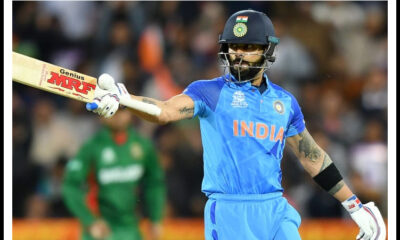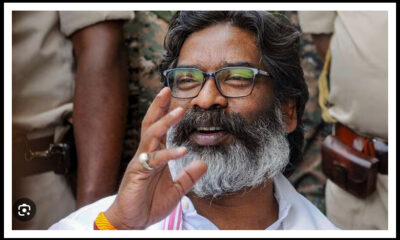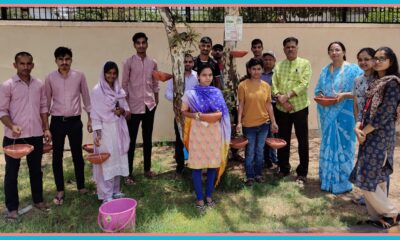2002 GUJARAT RIOTS
“Abuse of Power by Gujarat”: The rapists of Bilkis Bano are going back to prison
Published
4 months agoon

In the Bilkis Bano case, the Supreme Court ruled that the Gujarati government lacked the authority to free the men in 2022
Delhi, New: The Supreme Court today revoked the early release of the 11 men found guilty of raping Bilkis Bano and killing her family during the 2002 Gujarat riots, marking a significant victory in her protracted fight for justice. The prisoners will be sent back to prison and will have two weeks to turn themselves in.
The Gujarat government lacked the authority to free the men in 2022, the Supreme Court ruled in a historic ruling that incited protests and criticism from opposition lawmakers, activists, and members of civil society.
The Gujarat government was chastised by the Supreme Court for enacting the exemption decision “without application of mind” and for “lack of competence.” Only the state in which a criminal is tried—in this example, Maharashtra—may release them.
“The exercise of power by the state of Gujarat is an instance of usurpation of power and abuse of power,” the court stated.
Considering the issue of whether the convicted individuals should return to prison in light of their right to personal freedom, the highest court determined that letting them out would be equivalent to approving “illegal orders.”
“The rule of law must be preserved unmindful of the ripples of the consequences,” the justices stated.
The Supreme Court harshly criticized its own ruling from May 2022, which was given by retired Justice Ajay Rastogi and permitted the guilty to file an appeal with the Gujarati government seeking an early release from prison. According to the judges, the offenders obtained the order “through fraudulent means”. They added that the Gujarati government ought to have asked for an examination of the 2022 directive.
Read also:-To become the first woman to own a $100 billion fortune, Francoise Bettencourt Meyers
The Gujarat government had released the prisoners on an antiquated 1992 remission policy, but a 2014 rule prohibiting the release of prisoners for capital offenses has subsequently taken the place.
Following the Supreme Court’s order for Gujarat to decide on the remission appeal of one of the prisoners, Radheshyam Shah, the state government conferred with a panel comprising individuals connected to the state’s ruling Bharatiya Janata Party. The tribunal defended their decision to release the prisoners by pointing out that they were “sanskari (cultured) Brahmins” who had already completed a 14-year sentence and had behaved well.
A BJP MP and an MLA shared the platform with the prisoners, who received a hero’s welcome complete with garlands and candy. It was revealed to the Supreme Court last year during an 11-day hearing of petitions contesting the release—including one from Bilkis Bano—that Convict Radheshyam Shah had even begun practicing law.
Mahua Moitra of the Trinamool Congress, Subhashini Ali of the CPM Politburo, independent journalist Revati Laul, and former vice-chancellor of Lucknow University Roop Rekha Verma were among the petitioners opposing the release of the inmates.
The Gujarat administration was on “thin ice” over its decision, the Supreme Court said, posing pointed questions. The original records pertaining to the remission were requested to be submitted by the Gujarat government and the Center by Justices BV Nagarathna and Ujjal Bhuyan.
When Bilkis Bano was twenty-one years old and five months pregnant, she was gang-raped as she was running from the communal riots that followed the Sabarmati Express fire, which claimed the lives of fifty-nine kar sevaks. Her daughter, age three, was one of the seven family members killed during the riots.
You may like
-


Kohli brings out alternative arsenal to counter spin bowling ahead
-


The Supreme Court rules that former Jharkhand Chief Minister Hemant Soren’s plea in a money laundering case was “infructuous.”
-


Janhvi Kapoor Wears A Red Cutout Dress Inspired By A Cricket Ball, Similar To Zendaya’s Movie-Themed Outfits
-


Two winners of the Miss USA pageant have resigned, citing disrespect and mental health issues.
-


Why Does MS Dhoni Have a Muscle Tear While Playing for CSK? The ‘Theory’ of an Ex-IPL Team Official Paints a Grim Image
-


पक्षी मित्र योजना में बांधे परिंडे

